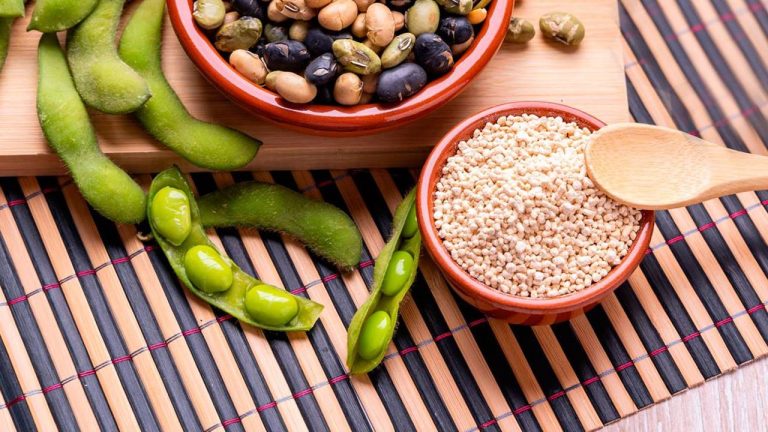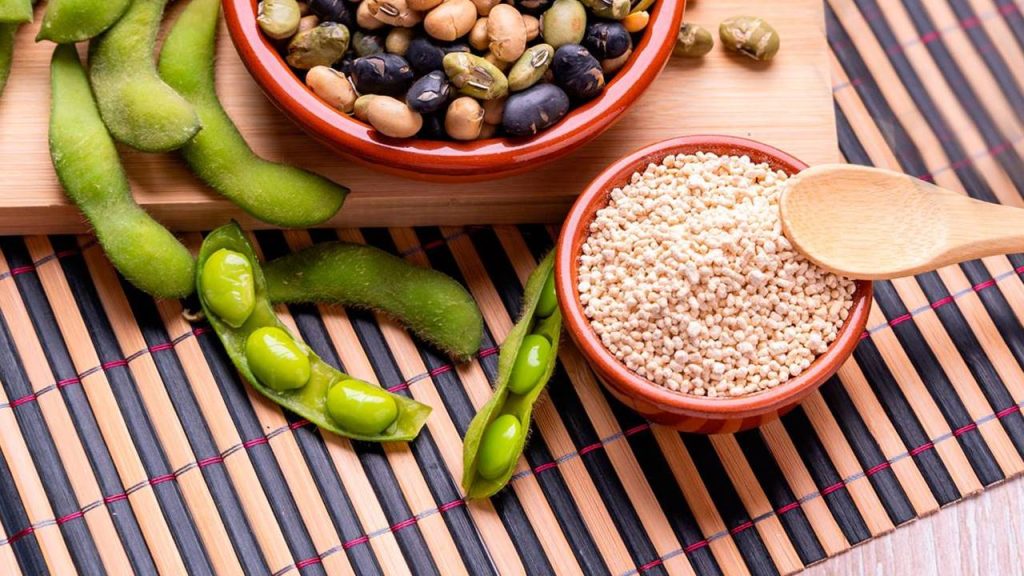
Taking lecithin supplements will energize and boost your memory and concentration. In addition, it has an important anti-inflammatory effect.

Lecithin is a natural product found in some foods, such as soy, from which the most common supplement is extracted. It has a color that varies between light yellow and tan, with a neutral smell and a pleasant taste. Its healthy properties are multiple, and it especially helps to combat physical and mental fatigue.
SOY LECITHIN: PROPERTIES
Lecithin is also called phosphatidylcholine, because it is made up of a complex mixture of choline phospholipids, inositol and serine, along with B vitamins and the antioxidant vitamin E. Among its fatty acids are the important omega 3. Due to its nutritional characteristics, it has many health benefits.
1. HELPS FIGHT PHYSICAL FATIGUE
- Taking lecithin has been shown to be effective as a replacement therapy for damaged lipids that make up cell membranes.
- In the mitochondria of cells, the body’s energy is synthesized and stored. Their membranes are composed of phospholipids, but they can oxidize due to intense physical activity, injury, age or disease.
- When those phospholipids are oxidized, energy decreases, leading to fatigue, aging, and degenerative diseases.
- Lecithin improves the energy supply of the mitochondria of cells, thanks to its composition similar to these membranes. This action has positive effects on tiredness, fatigue and brain injuries.
- Lecithin facilitates the formation of acetylcholine, responsible for delaying fatigue and muscle contractions. And as it increases the lipolysis of fats, it is key to the resistance of athletes and the fatigue of the sick.
- Lecithin is included in sports nutrition because it provides phosphatidylserine, another essential phospholipid in high-endurance sports. In addition, it accelerates recovery, prevents muscle pain and lowers inflammation, optimizes energy formation and reduces stress.
2. HELPS FIGHT MENTAL FATIGUE
- The omega-3 fatty acids in lecithin exert an antioxidant action on brain lipids. Its phospholipids are effective in reducing stress and improving memory, mobility and cognition, as well as in reducing neuronal degeneration in Alzheimer’s disease and restoring the parameters associated with concentration.
- Lecithin reduces mental fatigue and improves performance in times of study, thanks to the neuronal regenerative capacity of its phospholipids, and its richness in vitamins B and E. It influences brain development, memory, concentration and mood.
- Nonspecific fatigue, for example, may be due to alterations in the synthesis and activity of certain neurotransmitters. One is acetylcholine, whose precursor is choline, the basic component of lecithin. Its high availability reduces this fatigue.
3. IT IS ANTI-INFLAMMATORY
The omega 3 fatty acids in lecithin have anti-inflammatory actions. Therefore, lecithin reduces the symptoms of rheumatoid arthritis, thanks to its omega 3 fatty acids and phospholipids, and reduces fatigue associated with cancer and the adverse effects of chemotherapy.
4. IMPROVES METABOLIC SYNDROME
Lecithin liquefies cholesterol, regulates its segregation in bile and inhibits its reabsorption. It also reduces homocysteine, and with it the risk of cardiovascular disease, and prevents the development of fatty liver.
5. IMPROVES MENOPAUSAL SYMPTOMS
In pre- and postmenopause, supplementing with 1200 mg of lecithin daily relieves fatigue and helps with menopausal symptoms such as hot flashes, sweats, anxiety, depression and insomnia. In addition, it reduces pressure and swelling of the legs.
HOW TO TAKE LECITHIN
Soy beans are the main source of lecithin. Even so, it is also present, although in smaller proportions, in nuts and seeds (sesame, sunflower …), in avocado, olive oil and egg yolk. It is an emulsifier widely used in the preparation of chocolates and to give consistency to sauces. The body synthesizes it in the liver.
In addition, there are different lecithin supplements. Granules are usually the most common, because their flavor and texture are pleasant. As a supplement, two to four tablespoons are added daily to smoothies, juices or vegetable milks. They are also used as a salad dressing. Another option is to take it in capsules of between 1,200 and 1,600 mg, with a maximum of 3 g per day. Do not forget that in very high doses, lecithin can present contraindications: it can cause abdominal pain, sweating, vomiting and weight loss. It may also interact with blood-thinning medications and hypothyroidism medications. And it is discouraged in pregnancy.